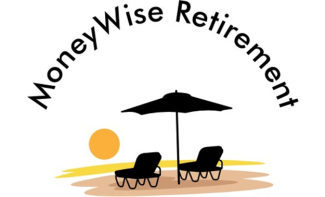IRS Updates to Withdrawing from your Retirement Plans Early
It’s been a busy summer for the U.S. Treasury and the IRS as they continue to issue new guidance for several provisions in the Coronavirus Aid, Relief, and Economic Security (CARES) Act.
We’d like to share the most notable items that appeared in IRS Notices 2020-50 and 2020-51, dedicated to a temporary relaxation of retirement account withdrawal rules and the required minimum distributions (RMD) waiver as a result of the pandemic.
The CARES Act, which became law in late March, significantly relaxed rules that allow people to take loans from their company-sponsored retirement plans and withdrawals from their retirement plan accounts and individual retirement accounts (IRAs). The dollar limits on retirement plan loans have been doubled to the lower of 100% of account balance or $100,000 (available only through September 23); withdrawals from retirement accounts, including IRAs, up to $100,000 are exempt from the 10% pre-age 59½ tax penalty; and income tax due may be paid over three years. What’s more, distributions may be paid back into the retirement account within three years, thus reversing prior income inclusion and tax.
In addition, the RMDs otherwise due from retirement accounts in 2020 were waived, giving individuals an option to not take money out of their hard-hit accounts or return them if already received (this waiver doesn’t apply to defined benefit or cash balance plans).
New Circumstances Expanded Eligibility for Withdrawals and Loans
The relaxed rules were not intended as a hall pass for anyone who wanted to access retirement funds. The Act carefully outlined eligibility conditions. Quickly, however, many noticed that the rules excluded several individuals who also suffered financially as a result of COVID-19.
The IRS, as permitted by the CARES Act, stepped in and added additional circumstances to include individuals who experienced financial hardship because:
- Their self-employment income was reduced due to the pandemic
- They had a job offer rescinded or their new job’s start date was delayed
Their spouse or a member of household, due to the pandemic:
- Was laid off, furloughed, quarantined
- Had work hours, pay or self-employment income reduced
- Cannot work due to childcare unavailability
- Had a job offer rescinded or the start date of a new job postponed
- A business owned or operated by the individual’s spouse or a member of household has closed or reduced hours
The IRS generously defined a “member of household” as anyone who shares the individual’s principal residence. As a result, more individuals now may access their retirement savings in case of a coronavirus-related financial hardship.
Any Unwanted 2020 RMDs May Be Repaid by August 31, 2020 due to the timing of when the CARES Act was enacted, individuals who took their RMD in January and/or those who were taking their RMDs monthly could not redeposit their funds because of certain timing rules.
The IRS helped by extending the redeposit window to August 31 and temporarily waiving restrictions on the number of rollovers permitted in a 12-month period. Therefore, January RMDs and other monthly 2020 RMD withdrawals can be packaged and sent back to the account no later than August 31, 2020. The option to repay an RMD was also given to nonspouse beneficiaries of retirement accounts.
An important caveat: while RMDs originating in employer-sponsored retirement plan may be moved back to the same plan or an IRA, RMDs that came out of IRA accounts must be repaid back to the same IRA account.
Tax-Reporting and Repayment Roadmap Laid Out
The IRS provided details on how to report the initial coronavirus-related distribution on 2020 tax returns and provided a blueprint for income tax reporting if an individual decides to repay a coronavirus-related distribution in the three-year period following the date of disbursement. The IRS cautioned that, once in place, a decision to pay income tax proportionately over three years may not be changed.
A Number of What-If Scenarios Addressed
The IRS has provided directions for a variety of real-life issues faced by many in these uncertain times, including:
- Employers have an option to decide whether to implement coronavirus-related distribution and loan rules; nonetheless, qualified individuals can still claim the favorable tax benefits of coronavirusrelated distribution rules for their plan withdrawals even if plan provisions aren’t changed
- For retirement account beneficiaries who are taking their RMDs under the give-year rule, the five-year timeframe has been extended by another year. This option is available for retirement accounts whose original account owner died in the period from 2015 and through 2019. The 2021 RMD for those whose first RMD was due in 2020 must be received by December 31, 2021; it will not get pushed out to April 1, 2022.
- The IRS stated that employers and financial institutions are not tasked with investigating or confirming eligibility for coronavirus-related disbursement from a retirement account or otherwise quantifying the extent of financial need; an individual’s certification is enough. The IRS did point out that the onus is on the taxpayer who will certify to eligibility when filing their tax return with the IRS.
- For the individuals receiving 72(t) distributions (Substantially Equal Periodic Payments), receipt of a coronavirus-related distribution will not be treated as a modification to the 72(t)-payment stream, and thus will not result in a recapture tax Relief for non-qualified deferred compensation plans was also granted. Generally, non-qualified deferred compensation plan deferral elections must be made by the end of the taxable year before the year for which the deferral is made (i.e., 2020 elections were made by end of the 2019 calendar year). Thus, many individuals whose financial circumstances changed were locked into 2020 compensation deferral elections. The new guidance allowed cancellation of these elections.
This continues to be a rapidly changing environment. We are keeping a close eye on these and other important developments and will update you accordingly. My team and I are here to continue to help you pursue your financial goals during these unprecedented times.
Best wishes to you and your loved ones.
The information contained herein is for information purposes and is not legal or tax advice. Please contact your tax or legal professional to discuss specific interpretations around the CARES Act and related rules and how they apply to your unique facts and circumstances.



